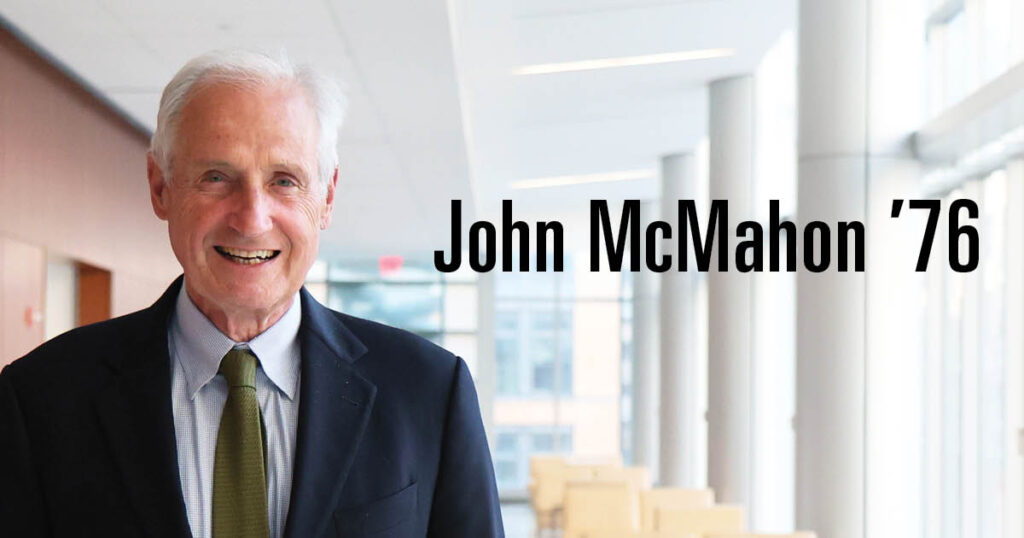
On March 18, New York Law School Trustee and Distinguished Senior Fellow John McMahon ’76 delivered a virtual lecture at the African Energy Leadership Centre of the Wits Business School in Johannesburg, South Africa. Drawing on a wealth of experience in energy law and utility industry restructuring, McMahon presented an expansive overview of the U.S. electric transmission system to an audience of energy leaders, regulators, and students from across South Africa.
After graduating from NYLS, McMahon began his legal career as an attorney in the rate proceedings department at Con Edison. He rose through the company’s law department before becoming Senior Vice President and General Counsel, and later served as President and CEO of its subsidiary, Orange and Rockland Utilities. There, he led electric and gas service operations in southeastern New York State and surrounding areas. In 2015, he was appointed CEO of the Long Island Power Authority.
McMahon began his lecture with a brief examination of the history of electricity in the United States, which essentially began in downtown Manhattan in 1882 with Thomas Edison’s first power station. He went on to explain how electric service regulation has evolved, focusing on the role of the Federal Energy Regulatory Commission (FERC), an agency within the U.S. Department of Energy which has central responsibility for U.S. electric transmission system regulation.
McMahon’s talk highlighted major policy changes over the years—particularly FERC Orders 888, 2000, 1000, 2023, and 2222—that have driven open access policies, encouraged renewable energy investment, and improved long-term planning for transmission infrastructure. Additionally, he provided insight into key topics such as industry restructuring, wholesale power markets, distributed energy resources, and the importance of ethics and compliance in the energy industry.
A key theme of McMahon’s talk was reliability and electric service as a public duty. He noted that grid reliability, especially in the face of growing energy demands, climate change, and rapid technological advancements, is critical. “Electric market reform moves like a glacier most of the time. A slow pace of change can be frustrating, but a compelling justification for gradualism is the importance of electric service reliability,” McMahon said. “Reliability is job number one.”
Overall, the event marked a key moment in fostering global dialogue around energy policy, and highlighted NYLS’s growing global impact through the meaningful work of its distinguished fellows and alumni.

